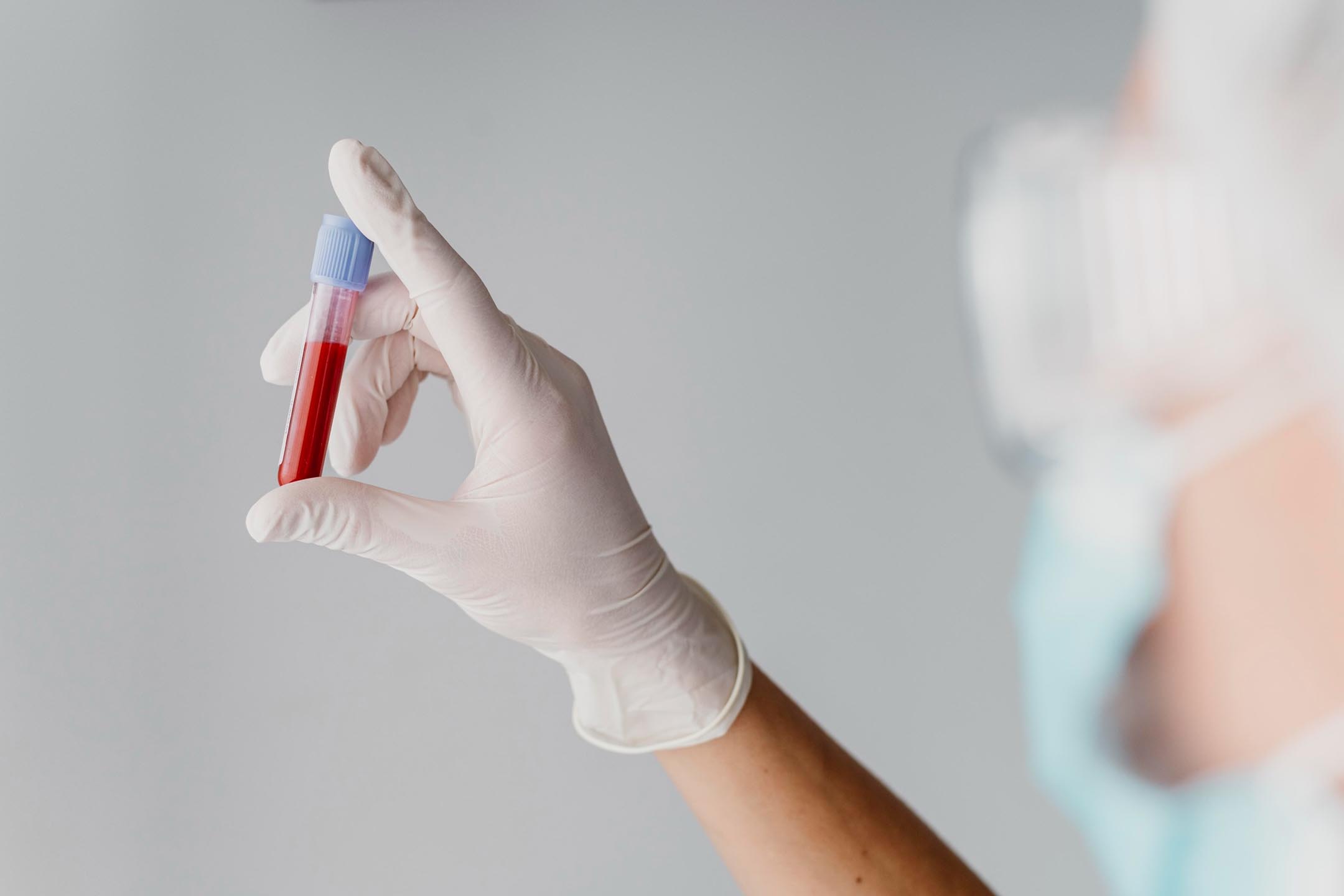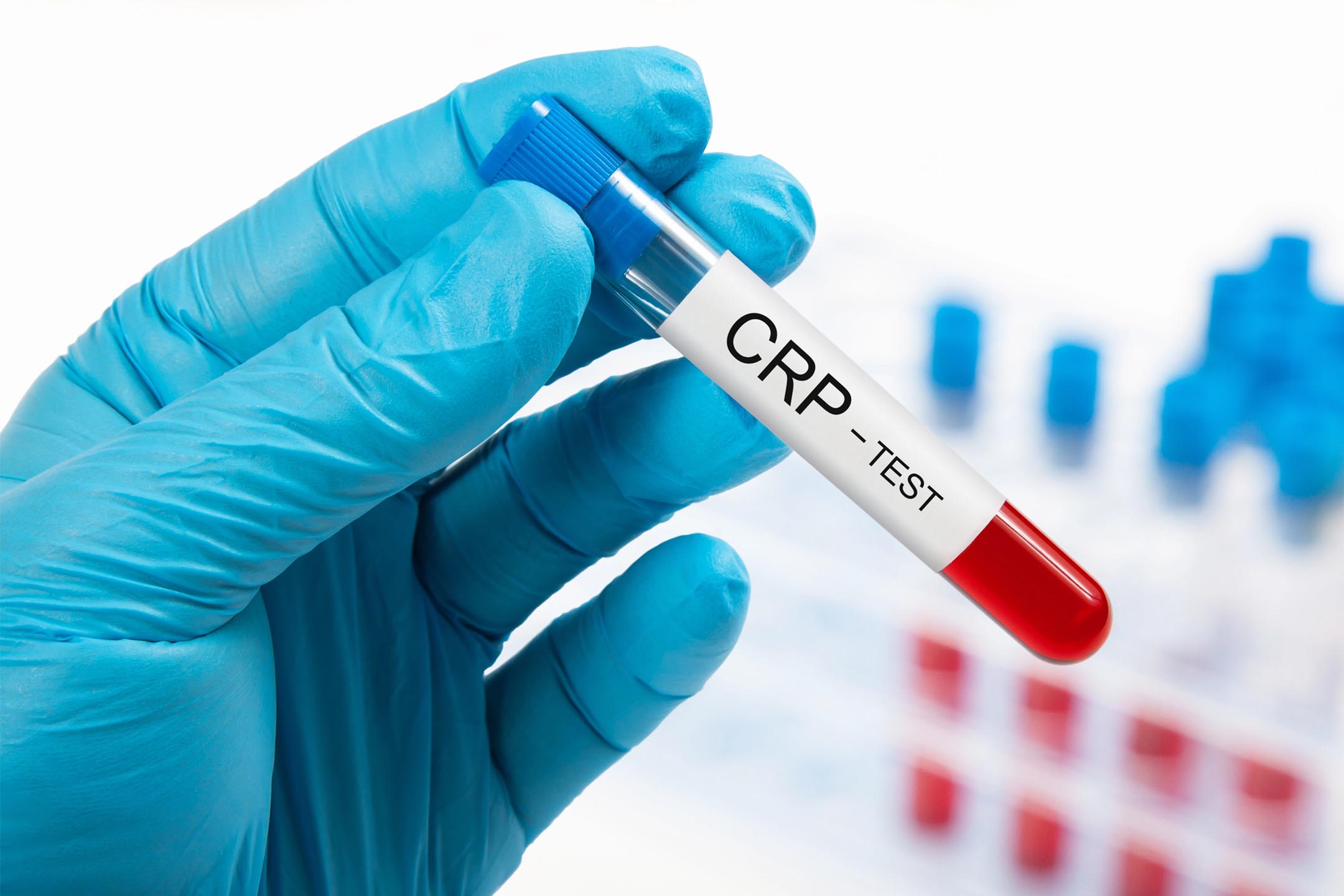C-reactive protein (CRP) is a substance produced by the liver in response to inflammation. When something in the body triggers the immune system (such as an infection, injury or chronic condition) CRP levels can rise quickly. A CRP test is a simple yet powerful blood test that helps detect inflammation, making it a useful diagnostic tool for a wide range of health issues.
A CRP test can offer important insight into what’s happening beneath the surface, whether you are dealing with unexplained symptoms or monitoring an ongoing condition. So, what do your CRP results really mean?
What Is a CRP Test?
A CRP test measures the level of C-reactive protein in your blood. CRP plays a key role in the body’s immune response, acting as a signal of inflammation being present. While CRP itself doesn’t cause any symptoms, elevated levels often indicate that the body is fighting something; whether short-term (like an infection) or long-term (such as an autoimmune condition).
Doctors use CRP tests for a number of reasons:
- To diagnose or monitor infections.
- To assess the risk of heart disease.
- To track inflammatory conditions such as rheumatoid arthritis or lupus.
- To evaluate how well the body is responding to treatment.
There are two main types of CRP tests:
Standard CRP test:
This test is useful for detecting significant inflammation caused by infections or chronic diseases. It measures CRP in milligrams per litre (mg/L) of blood.
High-sensitivity CRP (hs-CRP) test:
This version detects much lower levels of CRP and is often used to assess cardiovascular risk. Even slight elevations can signal a higher risk of heart disease or stroke.
The Link Between CRP and Inflammation
CRP is considered an acute-phase protein, meaning its levels rise rapidly in response to inflammation. It doesn’t pinpoint the exact cause, but it acts as an indicator for something that needs attention.
Common conditions that can raise CRP levels include:
- Infections: Bacterial and viral infections can cause significant spikes.
- Chronic inflammatory diseases: Conditions like rheumatoid arthritis, lupus and inflammatory bowel disease are all linked to elevated CRP.
- Injury or surgery: The body naturally responds with inflammation after trauma or operations.
- Obesity and metabolic syndrome: Chronic low-grade inflammation is common in individuals with these risk factors.
How Is a CRP Test Carried Out?
A CRP test is a straightforward blood test carried out at your surgery or private clinic. Here’s what to expect:
- A healthcare professional will clean the skin and insert a small needle into a vein in your arm.
- Blood is drawn into a vial and sent to a lab for analysis.
- Results are usually available within 24 to 48 hours.
Preparation is minimal. There is no need to fast, and the test can be taken at any time of day.
Risks are low. Some people may experience mild bruising or discomfort at the puncture site, but complications are rare.
Interpreting CRP Test Results
CRP levels are measured in milligrams per litre (mg/L) of blood. While reference ranges may vary slightly depending on the lab, typical results are as follows:
- Less than 1 mg/L: Normal – low risk of inflammation
1 to 3 mg/L: Mild elevation – possible low-level inflammation - 3 to 10 mg/L: Moderate elevation – could indicate a mild infection or chronic condition
- Over 10 mg/L: High – likely due to significant infection or active inflammation
- Over 100 mg/L: Very high – often seen with severe infections or major inflammatory responses

CRP Levels and Specific Conditions
CRP levels alone are not diagnostic, but they can support the identification or management of specific conditions:
Heart disease:
An hs-CRP test is often used as a marker of cardiovascular risk. Elevated levels may indicate inflammation in the blood vessels, which can contribute to heart disease.
Autoimmune conditions:
In diseases such as rheumatoid arthritis, CRP levels can help assess how active the inflammation is and whether treatments are working.
Infections:
A sudden spike in CRP often points to an acute bacterial infection. It can also help monitor the response to antibiotics or track complications.
What to Do If Your CRP Is High
If your CRP level is elevated, your healthcare provider will consider your symptoms, medical history and possibly run further tests to understand the cause.
When to worry:
A consistently high CRP, especially when accompanied by other symptoms, should not be ignored. It might indicate an underlying issue that requires medical intervention.
Follow-up tests may include white blood cell counts, imaging or additional inflammatory markers to narrow down the cause.
Lifestyle changes can also support CRP level improvement. These may include:
- Reducing processed foods and increasing anti-inflammatory foods.
- Managing stress through relaxation techniques or therapy.
- Increasing physical activity.
- Losing excess weight, if applicable.
Natural Ways to Lower CRP Levels
Several natural and lifestyle-based strategies may help lower CRP over time, especially if chronic inflammation is a concern:
- Dietary choices: Anti-inflammatory diets that include omega-3 fatty acids (from fish or flaxseed), turmeric, green leafy vegetables and whole grains may help reduce CRP.
- Exercise: Regular, moderate physical activity is known to reduce systemic inflammation.
- Stress management: Chronic stress can elevate CRP levels. Meditation, breathing exercises and adequate sleep are all known to be helpful.
- Avoid smoking and excessive alcohol: Both are associated with higher CRP levels and inflammation in the body.
Taking charge of your health through better diagnostics
CRP tests are a valuable tool in detecting and monitoring inflammation, helping to uncover underlying conditions and guide effective treatment plans. Whether you’re tracking an autoimmune disorder, managing cardiovascular risk or investigating vague symptoms, CRP results can reveal a lot about your health.
If you’ve been advised to get an inflammation test or simply want to check your health proactively, The Forbury Clinic offers convenient, high-quality private blood tests, including the CRP test. Take a proactive step towards understanding and managing inflammation in your body by booking an appointment today.
CRP Test FAQs
Can CRP detect cancer?
CRP is not used as a standalone cancer test. However, some cancers may cause inflammation, which can elevate CRP levels.
Is CRP always reliable?
CRP is a useful marker for inflammation but doesn’t identify the source. It should always be interpreted alongside other clinical findings.
Can stress increase CRP?
Yes, chronic psychological stress has been linked to higher CRP levels due to its effect on the immune system.
How often should CRP be tested?
This depends on your health status. If you have a known inflammatory condition or are being treated for an infection, your doctor may recommend periodic testing.


